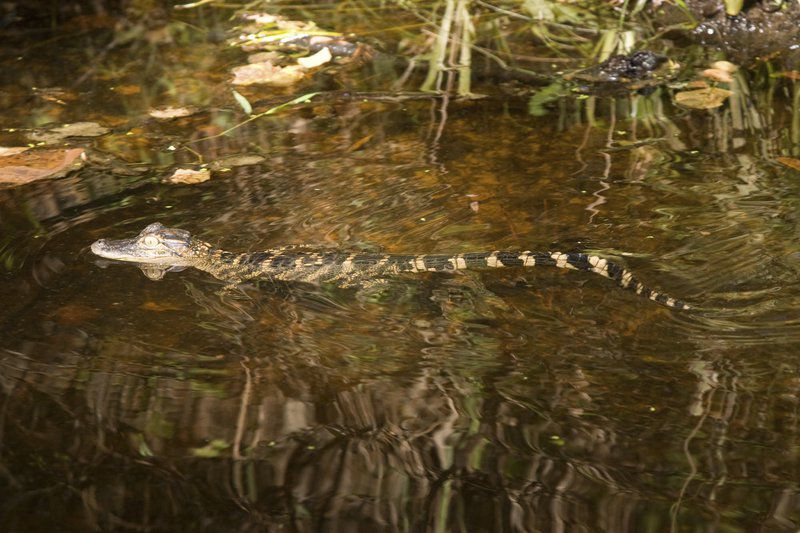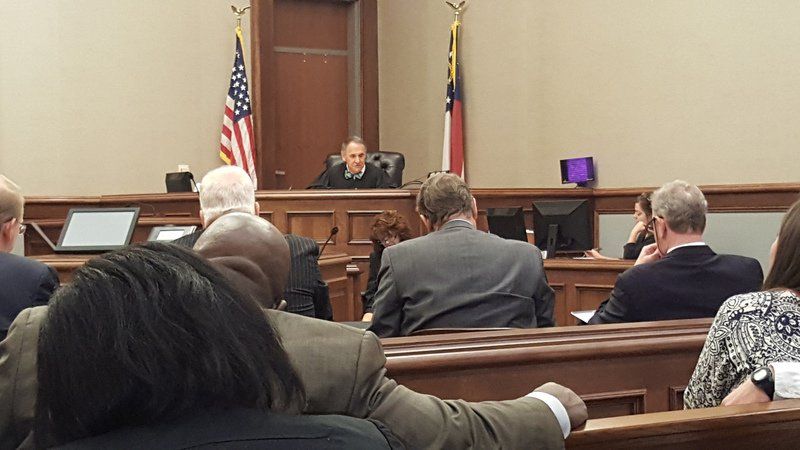Wildlife officials: Gators pose low risk in Georgia
Published 8:17 am Saturday, June 25, 2016

- Photo courtesy of Georgia Department of Natural ResourcesA young alligator swims at Reed Bingham State Park in Adel in this undated photo.
ATLANTA – Alligators were on Portia Gillespie’s mind when she set out to take her 12-year-old grandson kayaking.
This was the day after an alligator killed a 2-year-old boy at Disney World, outside Orlando, and shifted the nation’s attention to the danger lurking just beneath the water’s surface.
Gillespie’s daughter steered her from her first choice, Stephen C. Foster State Park in swampy southeast Georgia, and toward Reed Bingham State Park in Adel, about 100 miles away. The first thing that Gillespie did when she arrived was to quiz park staff about the presence of alligators.
“You don’t play with something that large and with the power of those jaws,” said Gillespie, of Jacksonville, Fla.
Gillespie’s concern explains why she was a little spooked to learn, nearly a week after her visit, that the beach at Reed Bingham had been closed and a trapper was searching for an alligator. Three other alligators had already been removed from the park — even before the fatal attack near Disney’s Grand Floridian resort.
The attack in Florida has brought intense attention to the presence of alligators in areas also frequented by people.
In Georgia, alligator attacks are rare, according to state wildlife and parks officials.
The state has counted only one fatality and eight other known attacks since 1980. Most incidents have occurred along the coast.
The exception was an attack at Lake Seminole, near Bainbridge, in the summer of 2000. Three friends were walking in four feet of water when an alligator bit one man’s thigh. The men likely startled or stepped on the submerged alligator, according to a state report.
Other alligator bites occurred at a golf course pond, a beach and a subdivision pond. It is believed that these gators either mistook people for food, such as a duck, or acted in self-defense.
An elderly woman from Canada remains the state’s only recorded fatality. The woman was housesitting for relatives at The Landings in Savannah when she was attacked in 2007. She died of major blood loss from her wounds.
Alligators were nearly wiped out in the 1960s and are still closely monitored in Georgia.
As of last year, it was believed that a quarter-million alligators lived in Georgia.
State law allows alligators to be hunted through a program that awards a limited number of permits. Last year, 325 alligators were caught.
The program is credited with a partial decrease in reports of “nuisance” gators. It’s also likely that people and gators are just coexisting more peacefully, said Melissa Cummings, a state Department of Natural Resources spokesperson.
When that isn’t the case, though, licensed trappers are called to remove gators.
This usually happens when alligators venture far from their natural habitat, have been fed by people, or have become so familiar with people that they stop avoiding them or become aggressive.
More than a decade ago, trappers in a given year removed an average of 288 alligators longer than four feet. That number tapered, and by 2013, trappers removed just 176.
Most trapped gators are about seven feet long, making them poor candidates for relocation, Cummings said.
Those that cannot be moved — such as the three from Reed Bingham State Park — are euthanized. Trappers, who are not paid by the state, keep the meat and hide.
Georgia requires that alligators less than four feet long be relocated.
The gators caught in Adel were longer than six feet, said Kim Hatcher, spokeswoman for the state’s parks.
“These particular alligators just weren’t showing fear of people and were staying far too close to the swimming area to keep it open,” she said.
The fourth was caught and relocated Thursday night. The others were killed.
Hatcher said the gators caught the attention of park staff when they stopped maintaining their usual distance from people. It’s believed that they were fed by visitors, or became accustomed to finding bait and parts of fish left by fishermen – enticements that likely caused them to associate people with food.
The park’s beach was set to reopen Friday. Hatcher said there were no plans to remove alligators from other parks.
Jason Clark, a licensed trapper who works north of the fall line from Columbus to Augusta, said he’s concerned that the Disney attack will create pressure for alligators to be removed from their natural habitat.
“When you are in Florida, or in Georgia south of the fall line, you are in the range of an alligator,” said Clark, who is president of Southeastern Reptile Rescue in Griffin. “And when you are next to a body of water, you are in the habitat of an alligator.”
Clark said he’s caught gators under porches, in backyards and on Interstate 75. He typically relocates them, though he declined to say where.
It’s incumbent on people, he said, to be aware of the potential danger. The risk of an attack is low, but not in cases when people have been feeding an alligator, he said. That teaches an alligator to equate people with food.
“When you’re done feeding the gator, and you’ve gotten all your pictures and you leave, we’re worried about the family that comes up and doesn’t know the gator is there,” he said.
Jill Nolin covers the Georgia Statehouse for The Valdosta Daily Times, CNHI’s newspapers and websites. Reach her at jnolin@gaflnews.com.





